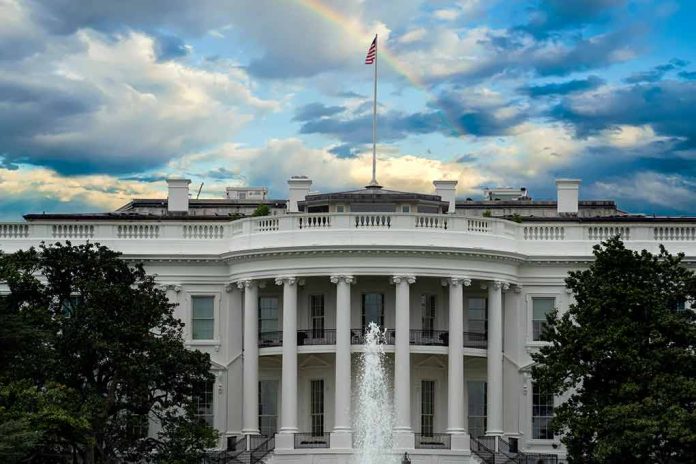
Exxon Mobil CEO Darren Woods urges backing of the Paris Agreement at U.N. climate summit, stirring curiosity for the conclusion.
At a Glance
- Darren Woods cautions against the U.S. withdrawing from the Paris Agreement due to business uncertainty.
- Inconsistent policies create inefficiencies for businesses.
- Exxon invests heavily in energy transition, focusing on carbon capture and partnerships.
- Woods advocates for global emissions management and incentives for cleaner energy.
Exxon Mobil’s Strategic View on Climate Policy
At the U.N. climate summit, Exxon Mobil CEO Darren Woods emphasized the critical role of consistent government policies in promoting business efficiency, advising President-elect Donald Trump to maintain the United States’ involvement in the Paris Agreement. Woods highlighted that fluctuating policies cause significant business uncertainty, a condition unattractive for company investments. He argued for a stable platform where businesses can strategically plan energy transitions, stressing the importance of America’s commitment to international climate accords.
Exxon has invested heavily in carbon capture, acquisition, and partnerships with Denbury Resources, CF Industries, Linde, and Nucor. A $5 billion investment underscores Exxon’s commitment to carbon capture, a vital part of their strategy for reducing carbon footprint. Additionally, Exxon has partnered with Shell on carbon capture solutions in Singapore. Despite uncertainties poised by a possible withdrawal from the Paris Agreement, companies like Exxon may still pursue emission reduction efforts independently.
The Case for Consistent Policy and Business Efficiency
Woods advocated for policy consistency, stating, “I don’t think the stops and starts are the right thing for businesses. It is extremely inefficient. It creates a lot of uncertainty.” This underscores Exxon’s push for a global framework to manage emissions. Despite Trump’s withdrawal of the U.S. from the Paris Agreement due to climate change skepticism, Woods believes an exit would hinder administration contributions to climate crisis mitigation efforts.
Darren Woods suggested that common-sense policymaking is crucial for climate action, urging the government to incentivize companies to pursue cleaner energy profitably. These initiatives are part of Exxon’s broader strategy to adapt to global warming challenges without largely deviating from fossil fuel reliance. Exxon plans to spend over $20 billion on emission reduction projects from 2022 to 2027, highlighting its progressive yet cautious approach.
The CEO of Exxon Mobil discouraged President-elect Donald Trump from withdrawing the US from the landmark Paris climate pact, arguing that would mean forfeiting a chance to push for “common sense” carbon-cutting policy on the world stage https://t.co/Wc1i0atge5
— Bloomberg (@business) November 12, 2024
Exxon’s Commitment and Adaptability to a Changing Landscape
Having set a target to achieve net zero emissions by 2050, excluding emissions from its fuel combustion, Exxon is intent on integrating climate policy evolution into its strategic objectives. Though the company supports the Paris Agreement’s goal of limiting global warming, it predicts that oil and gas demand will persist. Woods highlighted Exxon’s strategy’s adaptability to various future scenarios, including potential shifts in energy consumption patterns.
In conclusion, Exxon’s push for U.S. involvement in the Paris Agreement reflects its understanding that effective policymaking and strategic investments in emission reduction are essential for long-term business growth and environmental sustainability. The company’s approach balances tradition with innovation, ensuring its continued relevance in a rapidly changing energy landscape.
Sources:
Exxon Warns Trump Against Leaving Paris Agreement
Exxon Says Trump Should Keep U.S. in Paris Climate Pact
Exxon Chief to Trump: Don’t Withdraw From Paris Climate Deal









